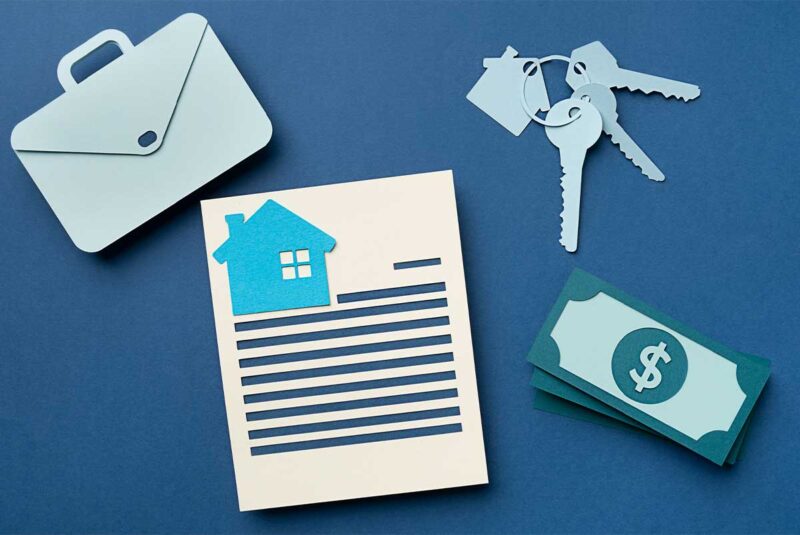Ready To Buy a Home?
Get Approved to Buy a Home
Rocket Mortgage® lets you get to house hunting sooner.
Do you feel like self-employment is keeping you from getting a mortgage? It’s a common feeling, but you may have an easier path to homeownership than you think. When it comes to mortgages for self-employed borrowers, several key factors can help you qualify for an attractive loan.
Mortgages for Self-Employed Home Buyers: What’s Different?
To qualify for a home loan, self-employed borrowers should expect to overcome a few more hurdles than their salaried counterparts. Fortunately, these hurdles aren’t too high.
For starters, expect the process to take a little more effort and a lot more documentation. You may also face different – often higher – interest rates if your income fluctuates or you’re just launching your business.
On the flipside, being self-employed could also open the door to certain loan products that aren’t available to salaried borrowers.
Is it hard to get a mortgage if you are self-employed?
When you’re self-employed, getting a mortgage takes a bit more work, but it’s nothing to worry about. If you’re capable of generating a living for yourself, you can manage the mortgage application process. Just be prepared and work closely with a lender you trust. This way, you can explore financing options that are tailored to the needs of self-employed borrowers.
Qualifying for a Self-Employed Home Loan
To prove you have a stable income and that your business is strong and viable for the future, lenders usually want to see 2 years of documented income. You’ll also need to introduce your business and explain what you do, how you earn income and where your business is located or operates.
Documents you’ll need
Typically, traditional borrowers need to provide little beyond a W-2 and a tax return. If you’re self-employed, expect to be asked for a lot more documentation. Obtaining a loan while you’re self-employed may require additional documentation to show proof of employment and income.
Employment verification documents could include:
- Business registration
- Business license
- Client contracts
- Form 1099-S
Proof of income documents could include:
- Personal and business tax returns
- Bank statements
- Profit and loss statements
- Income/expense reports
Credit requirements
Your credit history can affect your ability to get a mortgage.
Your credit report gives lenders a snapshot of your financial history. So a good credit score is key to qualify for a loan at the lowest rates. If your credit report shows you’re capable of managing debt responsibly, lenders will be more likely to provide favorable rates and terms.
Most lenders will consider a mortgage application with a credit score of 620 or higher.[1]But if you’re self-employed, aiming for a score closer to 680 can make the process significantly smoother and reduce some of the risk for lenders.
Remember, a higher credit score often results in a lower interest rate and better loan terms.
Debt-to-income ratio requirements
One of the first things a lender looks at for self-employed applicants is their debt-to-income (DTI) ratio. This calculation compares how much you owe against how much you earn.
Income can vary from month to month, so lenders may consider your average DTI ratio over the previous 1 – 2 years. Lenders prefer a DTI ratio of 36% or less for a conventional mortgage. Alternative loan options – like a Federal Housing Administration (FHA) loan – may allow a DTI ratio up to 50%.
Down payment requirements
Your down payment – or the amount of money you need to put down to obtain a mortgage – often depends on the type of loan, your credit score and other factors. Most conventional loans will require a down payment of 5% of the home’s purchase price (although some loans allow a 3% minimum down payment). However, with an FHA loan, you are able to put just 3.5% down.
Down payment requirements are usually similar for self-employed borrowers. Generally, the larger your down payment, the easier it’ll be to qualify for a home loan.
Self-Employed Mortgage Options
There’s always a chance your conventional mortgage application won’t be approved. But don’t stress – conventional loans aren’t the only option.
There are alternative home loan programs for self-employed individuals who might not qualify for conventional loans.
Federal Housing Administration (FHA) loans: FHA loans are designed to help low- to moderate-income buyers purchase a home.
Department of Veterans Affairs (VA) loans: VA loans are available to U.S. military, veterans and qualifying surviving spouses.
Bank statement loans: A bank statement loan is typically utilized by self-employed borrowers who have difficulty providing traditional income documentation.
5 Tips for Becoming an Attractive Self-Employed Borrower
Here’s how you can make your mortgage application stronger and increase your odds of success.
1. Keep your DTI ratio low
Borrowers who plan to apply for a home loan should try to lower their DTI ratio by increasing their income or lowering their debt. As a key factor in determining loan eligibility, a lower DTI ratio can make a tremendous difference.
2. Bump your credit score
Aim to increase your credit score in the 6 months or 1 year prior to your loan application. The best way to raise your score – and improve your DTI ratio – is to pay down debt.
3. Build your cash reserves
Prepare for your home purchase by building up your savings account(s) and other cash reserves. This will help you make a larger down payment and show you’re financially responsible.
4. Separate your business expenses
Show underwriters a clear view into your finances by keeping business and personal expenses separate. Consider using a business bank account and a business credit card to keep expenses organized.
5. Consider a co-signer or co-borrower
If your credit or income are holding you back, consider applying with a co-signer or co-borrower. You could increase your chances of qualifying by including their stable income or established credit in the equation.
Keep Your Hustle AND Get That House
Getting a mortgage as a self-employed borrower is possible. With some smart preparation, you can boost your chances of success and secure a great home loan. From there, all you’ll need to do is find the right mortgage lender for your needs and move in!
Get approved to buy a home.
Rocket Mortgage® lets you get to house hunting sooner.
The Short Version
- To qualify for a home loan, self-employed borrowers should expect to overcome a few more hurdles than their salaried counterparts
- To prove you have a stable income and that your business is strong and viable for the future, lenders usually want to see 2 years of documented income
- Typically, traditional borrowers need to provide little beyond a W-2 and a tax return. If you’re self-employed, expect to be asked for a lot more documentation
Fannie Mae. “Selling Guide.” Retrieved January 2023 from https://selling-guide.fanniemae.com/Selling-Guide/Origination-thru-Closing/Subpart-B3-Underwriting-Borrowers/Chapter-B3-5-Credit-Assessment/Section-B3-5-1-Credit-Scores/1032996841/B3-5-1-01-General-Requirements-for-Credit-Scores-08-05-2020.htm




